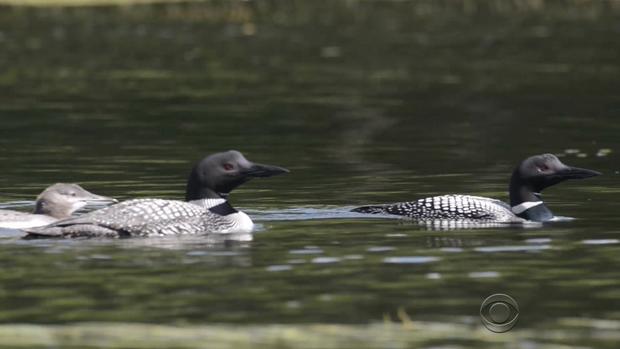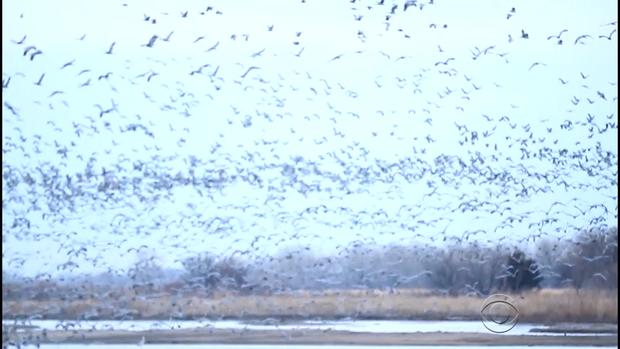As climate change looms, bad news for loons
WATERVILLE, Minn. - Their call is synonymous with the American wilderness, but the common loon of Minnesota's North Woods may actually be sounding an alarm.
"The land of 10,000 lakes is projected to not have loons in the summertime anymore by the end of the century," said Gary Langham, the Audubon Society's chief scientist.
By then, according to a report from the Audubon Society, climate change will threaten half of the birds in the United States. Some may disappear.
From loons, to eagles, to hummingbirds, flocks are getting squeezed, Langham said.
He added, "All these birds are at risk and they really paint a picture of an environment that is going to be at risk from global warming."
In the early 1900s, Loons nested as far south as Illinois and Pennsylvania. But ever since, their range has steadily shrunk.
If southern lakes continue to warm, the fish loons feed on could die, sending the birds farther north for food.
But in Waterville, Minnesota, scientists are capturing loon chicks and moving them to their traditional southern nesting sites in a new project to see if they can somehow survive.
"By providing a way to bring loons back to their former range and kind of kick-start some of the populations is our responsibility in the end," said David Evers with the Biodiversity Research Institute.
They monitor the chicks, and release them to what they hope will be new summer homes.
"If we just wait for nature to take its course, it'll take a very long time for the loons to restore themselves," said Evers.
So far, four chicks have been released from the pens and into the wild.
"Let's hope it's as simple as that bird coming back in two and a half years," said Evers.
The swallows come back to Capistrano. Maybe the loons will return to Waterville.


